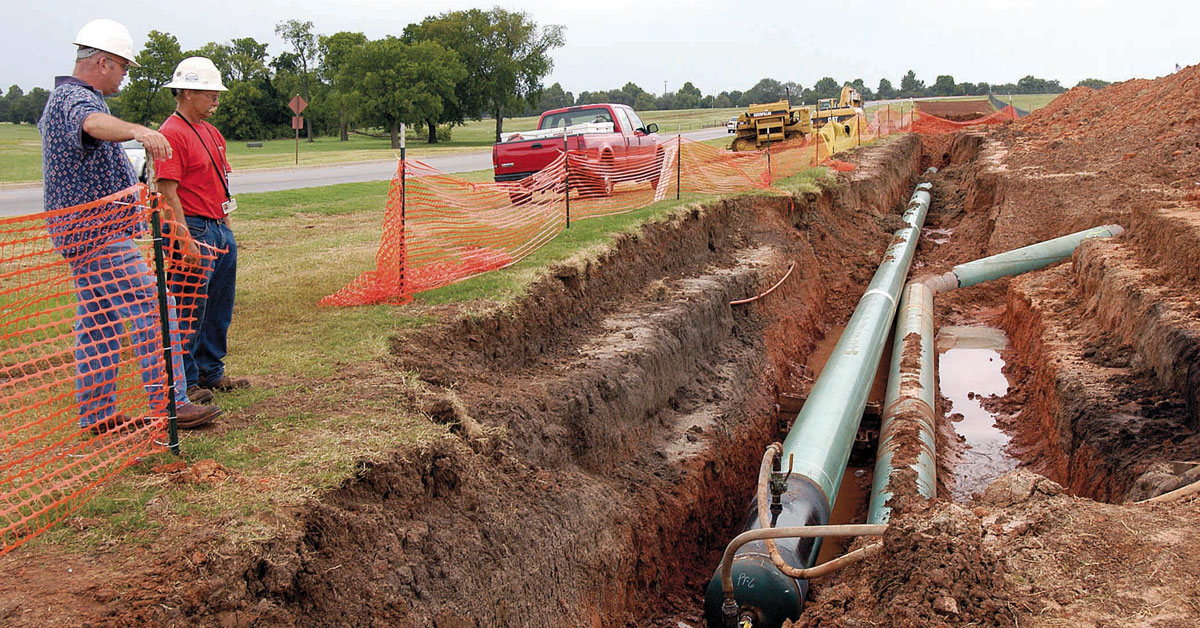When many Pennsylvania landowners look out onto their backyards, they are unaware of the pipeline system that currently resides under their lawns. Many more are unaware of the bottleneck within the system that transports gas from a record-setting natural gas reserve in the Marcellus Shale region of Pennsylvania. That bottleneck is keeping over 1,000 of the 8,000 Pennsylvania wells dry, and preventing energy resources from reaching market, both local and abroad.
This expensive problem has led several energy companies to plan to invest billions of dollars in natural gas infrastructure projects and pipeline construction in Pennsylvania over the next ten years to transport shale gas resources. It’s expected that parts of Berks County, Chester County, Delaware County and other areas north and west of these counties will be impacted by construction and landowner disputes. As these companies plan to dig up backyards across the Commonwealth to replace and add to current infrastructure with newer, bigger pipes, it’s important that impacted landowners understand their rights.
Here are four important questions impacted landowners should know to ask:
How long will pipeline construction take?
Landowners can and should inquire about how long the construction will take from day one through full restoration of each property. They should also know the extent of "earth disturbance" and the impact that disturbance will have on current and future use of the land, including farming and recreational uses. This is known as the Temporary Construction Easement phase. They should also know that the timeframe is often negotiable, and always compensable. Landowners should push strongly for the shortest possible timeframe. The current prediction is up to 3 years, but landowners should be pushing for a 6 month to 1 year time frame.
What permanent land use limitations will this cause to properties?
The Permanent Easement sets the specific location of the pipeline or pipelines. Landowners should understand precisely where the pipelines will be placed on their property, including the exact location, depth, width and length. The Permanent Easement becomes part of the title for the property and will be binding not only on the landowner but all successors and assigns. They also need to fully understand how the pipeline will impact their land. While the pipes are located underground, the reality is they will impact future use of the land since as a general rule no buildings or structures may be placed atop the easement area. The extent to which the easement will limit or prevent future subdivisions and construction should be clearly known. The greater the impact, the greater the potential compensation.
How will properties be restored?
Landowners must inquire as to how their property will be restored once the project is complete. The energy companies should be held responsible up front to restore all properties to their current condition, or better. There are many critical factors to consider, including restoration of natural resources such as streams and creeks, soil type and compaction standards, and landscaping.
Will the pipeline construction impact property and land value?
It is imperative for landowners to speak to a real estate agent and/or an appraiser early in the negotiation process to understand how the permanent easement will impact property value. Real estate agents are predicting that property and land values can be affected by tens of thousands of dollars since the new pipelines are different and much larger than the current pipes which have been in place since the 1930s. Before signing, make an informed decision on value.
These are just a few considerations for landowners to understand and address when asked to grant easement rights by a pipeline company in Pennsylvania. Other considerations, such as indemnities for environmental liabilities and accidents, size of the pipeline and the pressure it will operate under, limitations on future expansion and accessory facilities, inspection rights, and access to the easement area also should be specifically addressed.
If the landowner and pipeline company are unable to amicably negotiate the terms of the Temporary Construction Easement and Permanent Easement, and the compensation associated with each, the pipeline company may be able to obtain the easements through an eminent domain proceeding. In Pennsylvania, pipeline companies that qualify as “public utilities” may initiate eminent domain proceedings to obtain the required easements. In those situations, the landowner is compensated for the fair market value of the easements by a board of view or court, after the presentation of evidence by expert appraisers. In the vast majority of cases, it is better for both the landowner and the pipeline company to amicably negotiate the terms of the easements, and a compensation package, than to resort to an eminent domain proceeding.
For more information regarding real estate and eminent domain law as it relates to the Pennsylvania pipeline projects, please contact David Brooman at 610-275-0700, or by email at dbrooman@highswartz.com.
Note: The information above is general; we recommend that you consult with an attorney regarding your specific circumstances. The content contained herein is not meant to be considered as legal advice or as a substitute for legal representation.
Original article was written in May, 2015.
